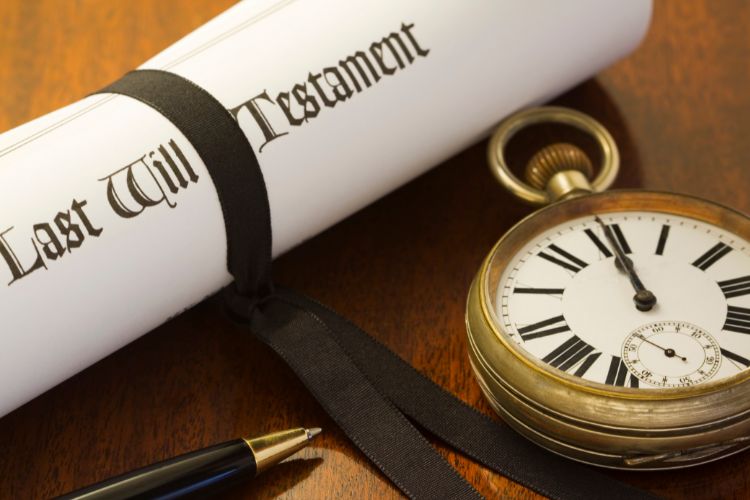Philanthropy often plays a significant role in estate planning, allowing individuals to leave a lasting legacy by supporting causes they care about. Charitable bequests—gifts made to charities through a will or trust—are a powerful way to give back, but they can also add complexity to the probate process.
Proper planning is essential to ensure that your charitable intentions are honored while minimizing delays and maximizing the impact of your gifts. Peabody Law Firm, located in Southlake, TX, and serving clients in Westlake, Trophy Club, Colleyville, Keller, and surrounding communities, offers expert guidance on incorporating philanthropy into your estate plan and managing charitable bequests during probate.
What Are Charitable Bequests?
Charitable bequests are gifts of money, property, or other assets that are designated for nonprofit organizations, religious institutions, or other charitable causes in your estate plan.
These gifts can take many forms, including:
- Cash Bequests:
- Specific dollar amounts left to charities.
- Percentage Bequests:
- A percentage of the overall estate designated for charitable purposes.
- Residuary Bequests:
- The remainder of the estate, after other bequests and obligations are fulfilled, left to a charity.
- Specific Asset Bequests:
- Donations of tangible or intangible assets such as real estate, stocks, artwork, or intellectual property.
- Contingent Bequests:
- Gifts that are made only if specific conditions are met (e.g., if other beneficiaries predecease the decedent).
How Probate Impacts Charitable Bequests
The probate process oversees the distribution of assets in accordance with the decedent’s will, including any charitable bequests. While probate ensures that your philanthropic wishes are legally executed, it can also introduce challenges, particularly in high-value estates with complex assets or significant charitable contributions.
Key Considerations for Charitable Bequests During Probate
- Validation of the Will:
- Probate validates the will and ensures that the charitable bequests comply with the law. If there are disputes over the will’s validity or the allocation of assets, the probate court will address them.
- Settlement of Debts and Obligations:
- Before charitable bequests can be distributed, the estate must settle any outstanding debts, taxes, and other obligations. This can delay the fulfillment of philanthropic gifts.
- Asset Liquidity:
- If the estate’s charitable bequests include non-liquid assets such as real estate or stocks, these may need to be sold during probate to fulfill the gift. Proper planning can help streamline this process and avoid unnecessary delays.
- Potential Disputes Among Heirs:
- Family members or other beneficiaries may contest charitable bequests, particularly if they believe the gifts reduce their inheritance unfairly. Such disputes can prolong the probate process and create additional legal expenses.
- Tax Implications:
- Charitable bequests may offer significant tax benefits for the estate, reducing federal estate taxes. However, the tax implications depend on the structure and timing of the gift, as well as the type of assets being donated.
Strategies for Managing Charitable Bequests During Probate

To ensure that your philanthropic goals are honored without causing unnecessary delays or disputes during probate, consider implementing the following strategies:
- Use Trusts to Avoid Probate:
- Establishing a charitable trust, such as a charitable remainder trust (CRT) or charitable lead trust (CLT), can allow you to make charitable gifts outside of the probate process. Trusts provide greater control over how and when your charitable contributions are distributed, while also offering potential tax benefits.
- Be Specific in Your Will:
- Clearly outline your charitable intentions in your will to minimize ambiguity and reduce the likelihood of disputes. Specify the exact charity, the type and amount of the gift, and any conditions for the bequest.
- Communicate with Charitable Organizations:
- Notify the charities named in your estate plan about your intentions. This ensures they are aware of the gift and prepared to work with the executor during probate.
- Designate Beneficiaries on Certain Accounts:
- Retirement accounts, life insurance policies, and other payable-on-death accounts can have charities named as beneficiaries. These assets bypass probate entirely, ensuring a quicker transfer of funds to the intended charity.
- Plan for Liquidity Needs:
- If your estate includes non-liquid assets designated for charity, ensure that the estate has sufficient liquid funds to cover debts, taxes, and other obligations without delaying the charitable gift. Life insurance policies or cash reserves can help address these liquidity needs.
- Incorporate No-Contest Clauses:
- Include a no-contest clause in your will to discourage heirs or beneficiaries from challenging your charitable bequests. This clause can help prevent disputes that might otherwise delay the probate process.
- Work with an Experienced Executor:
- Choose an executor who is familiar with managing high-value estates and charitable gifts. A knowledgeable executor can navigate the probate process more efficiently, ensuring that your philanthropic goals are fulfilled.
- Plan for Tax Efficiency:
- Work with an estate planning attorney and tax advisor to structure your charitable gifts in a way that maximizes tax benefits for your estate. For example, donating appreciated stocks or other assets can allow the estate to avoid capital gains taxes while reducing estate taxes.
Common Mistakes to Avoid
- Failing to Update Charitable Bequests:
- Life changes, such as the closure of a charity or shifts in your philanthropic priorities, may necessitate updates to your will or trust. Failing to revise these documents can lead to complications during probate.
- Overlooking Tax Implications:
- Charitable bequests can significantly impact the estate’s tax liability. Proper planning is essential to maximize tax benefits while ensuring that other obligations are met.
- Neglecting to Address Non-Liquid Assets:
- If your charitable gifts include non-liquid assets, failing to plan for their distribution can create delays or require the executor to sell assets under unfavorable conditions.
- Choosing the Wrong Executor:
- An inexperienced or biased executor can create unnecessary delays and complications in fulfilling charitable bequests. Carefully select an executor who is capable of managing the complexities of your estate.
How Peabody Law Firm Can Help
At Peabody Law Firm, we understand the importance of philanthropy in estate planning and the complexities involved in managing charitable bequests during probate.
Our approach includes:
- Comprehensive Estate Planning:
- We work closely with you to develop a tailored estate plan that incorporates your philanthropic goals while minimizing the potential for disputes and delays during probate.
- Probate Administration:
- Our team provides expert guidance to executors and beneficiaries, ensuring that charitable bequests are managed efficiently and in accordance with the decedent’s wishes.
- Tax Planning:
- We help structure charitable gifts to maximize tax benefits for your estate, ensuring that your legacy has the greatest possible impact.
Create a Lasting Legacy with Expert Probate and Philanthropy Planning
Managing charitable bequests during probate requires careful planning and expert guidance. If you are in Southlake or the surrounding areas, contact Peabody Law Firm to discuss how we can help you incorporate philanthropy into your estate plan and ensure a seamless probate process.
Leave a lasting legacy while protecting your family’s financial future with a well-crafted estate plan.

